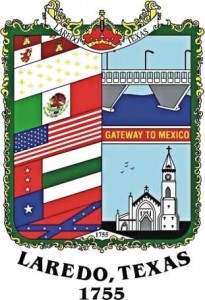Community Invited to Attend Holocaust Remembrance Day Ceremony
Written by Post Public Information Representative, May 6, 2011, 0 Comments
Ceremony combines spiritual, secular aspects to help honor, memorialize 6 million Jews killed during the Holocaust
Laredo, TX—After the horrors of the Holocaust, the world vowed to never let such a thing happen again. To that end, the City of Laredo, the Laredo Public Library Wall of Tolerance Center & Museum and Congregation Agudas Achim will host the Holocaust Remembrance Day Ceremony on Thursday, May 12, 2011, starting at 6:30 p.m. at the Laredo Public Library HEB Multi-Purpose Room. Holocaust Remembrance Day is when Jewish congregations around the world remember the six million Jews who were slaughtered during the Holocaust. This year’s Days of Remembrance theme, “Justice and Accountability in the Face of Genocide: What Have We Learned?”
This ceremony is listed as an official Holocaust Day of Remembrance Ceremony with the United States Holocaust Memorial Museum (USHMM).
The ceremony is open to persons of every faith and will feature a mix of celebration and somber remembrance. Pastor Mike Barrera of United Baptist Church Laredo will open the ceremony with an invocation, praying for peace to take hold and help heal the wounds of intolerance that may still linger in the community and the world. Afterwards follows the presentation of colors by the Cigarroa High School Jr. ROTC and the National Anthem, performed by the United High School Longhorn Choir. The ceremony will kick off with a proclamation from City of Laredo Mayor Raul G. Salinas. A musical interlude by the United High School Longhorn Choir, performing “Undzer Shtetl Brent” (‘Our Town is Burning’ in Hebrew) will also help add color to the ceremony.
“I am so honored to be a part of this very special and moving ceremony,” said Salinas. “Even in today’s world, the lessons of the Holocaust are still relevant for us and it is important that we remember what was lost by all of us, Jew and Gentile alike, when evil and intolerance reigned.”
Keynote speaker for the ceremony is Lilian Gordon, a Ukrainian-born Holocaust survivor who now lives in Houston. She was born on August 29, 1941 right after the Nazi’s invaded the Ukraine (Russia). She arrived in the United States on July 4, 1949. Gordon’s presentation will tell her life story, about surviving the Holocaust at that young age.
“Lili Gordon is one of our most dynamic speakers and is a repeat speaker to many schools in the Houston area,” said Bill Orlin, speaker coordinator for the Holocaust Museum in Houston. “She speaks to many organizations, as well as on many occasions here at the museum. I feel she will be able to describe the Holocaust in a very unique way to the people down in Laredo.”
Gordon is the President of Houston Jewish Holocaust Survivors and Descendants.
However, the highlight of the ceremony is the Holocaust Remembrance Day Ceremony. Both an Israeli holiday – more accurately, an official date of remembrance – and also a holiday or holy day commemorated and observed by many Jewish communities in the United States and around the world. Although secular in the sense that there are no religious obligations or prohibitions, special prayers and rituals have developed over the years, such as lighting six memorial candles—one for each million of the six million Jews who were murdered during the Holocaust.
“A city wide commemoration of The Holocaust serves to remind all citizens of the dangers of hate, prejudice and intolerance, a valuable lesson, especially for the young,” said Rabbi Elliot Rosenbaum, of Congregation Agudas Achim.
According to the USHMM, this year’s Days of Remembrance theme, “Justice and Accountability in the Face of Genocide: What Have We Learned?” commemorates the 65th anniversary of the verdicts delivered at the International Military Tribunal in Nuremberg and the 50th anniversary of the Eichmann trial. The theme marks these anniversaries and encourages reflection on the role of justice in the aftermath of genocide. Both trials set important precedents and raised significant questions about the nature of justice in the face of such enormous crimes. Prior to the International Military Tribunal and subsequent Nuremberg trials, the principle of national sovereignty prevailed; in its aftermath, a new understanding of international responsibility for human rights would emerge as the world began to fully understand the events now called the Holocaust. Adolf Eichmann was a high-ranking SS (Schutzstaffel, or elite guard of the Nazi party) officer central to the planning and implementation of the murder of six million Jewish men, women, and children. He was captured in Argentina by Israeli agents in 1960 and brought to trial in Israel for what would become known as the “trial of the century.” It was a watershed event televised around the world, refocusing international attention on the murder of Europe’s Jews. The Nuremberg and Eichmann trials strove for justice, but what does justice really mean in the face of a crime like genocide? The trials were an act of public accountability owed to the victims; justice to a great extent was aspirational.




